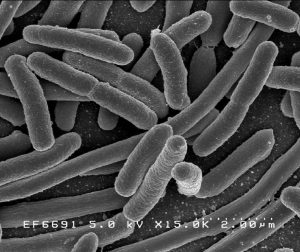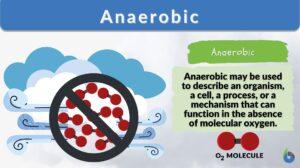Search Results for: streptococcus
Streptococcus
Definition noun, plural: streptococci (1) A genus of bacteria characterized by being coccus, Gram-positive, and occurring in... Read More
Cell morphology
The basic essence for any living organism is its structural framework which includes appearance, form, and the... Read More
Streptolysin O
Definition noun An oxygen-labile, immunogenic hemolysin produced by or derived from some strains of... Read More
Susceptible
Resistance, vulnerability, sensitivity, tolerance, and susceptibility are some highly important terminologies across the... Read More
“Mutualism factor” could explain why body does not attack normal flora
When sadness reeks in and you feel as if you are all by yourself, think again. That is because you are never alone. As a... Read More
Enterococcus faecalis
Definition Non-motile, gram-positive, facultatively anaerobic, microbial species that normally dwells in the... Read More
Gamma hemolysis
Definition noun Nonhemolytic bacterial colony on blood agar plates. Supplement The hemolytic reactions of streptococci on... Read More
Facultative anaerobe
Facultative Anaerobe Definition What does facultative anaerobe mean? Facultative organisms are the most adaptable... Read More
Lobar pneumonia
Definition noun (pathology) A type of pneumonia that affects the lobe or an enormous section of a lung, and is often caused... Read More
Phagocytosis
Phagocytosis Definition Phagocytosis is a basic physiological cellular process wherein a cell ingests a solid particle... Read More
Endocytosis
Endocytosis Definition What is endocytosis in biology? Endocytosis is a cellular process by which a cell internalizes any... Read More
Streptolysin S
Definition noun A nonantigenic, oxygen-stable β-hemolytic enzyme produced by some bacteria, especially... Read More
Gram-positive cocci
Definition noun, singular: gram-positive coccus A group of spherical bacteria that retains the violet stain following gram... Read More
Gram-positive bacteria
Definition noun, singular: gram-positive bacterium A group of bacterial cells that retains the violet colour following ... Read More
Reverse passive agglutination
Definition noun A type of agglutination reaction in which known antibody is bound to a carrier particle instead of the... Read More
Integumentary system
Integumentary System Definition The integumentary system is the outermost layer of the body. The animal body, in... Read More
Carbohydrate
Carbohydrate Definition A biomolecule refers to any molecule that is produced by living organisms. As such, most of them... Read More
Anaerobic bacteria
Bacteria are classified according to the need for oxygen to survive and grow. For example, aerobic bacteria are bacteria... Read More
Opportunistic pathogen
Opportunistic Pathogen Definition How do we define opportunistic pathogen? The opportunistic pathogen is an infectious... Read More
Aerotolerant
Aerotolerant Definition The term "aerotolerant" pertains to an organism that does not require oxygen for growth but can... Read More
Erythrogenic toxin
Erythrogenic toxin (Science: protein) toxin produced by strains of streptococcus pyogenes responsible for scarlet fever.... Read More
Quellung phenomenon
Definition noun A biochemical reaction in which anticapsular antibodies bind to the capsule of a bacterium, resulting in the... Read More


















